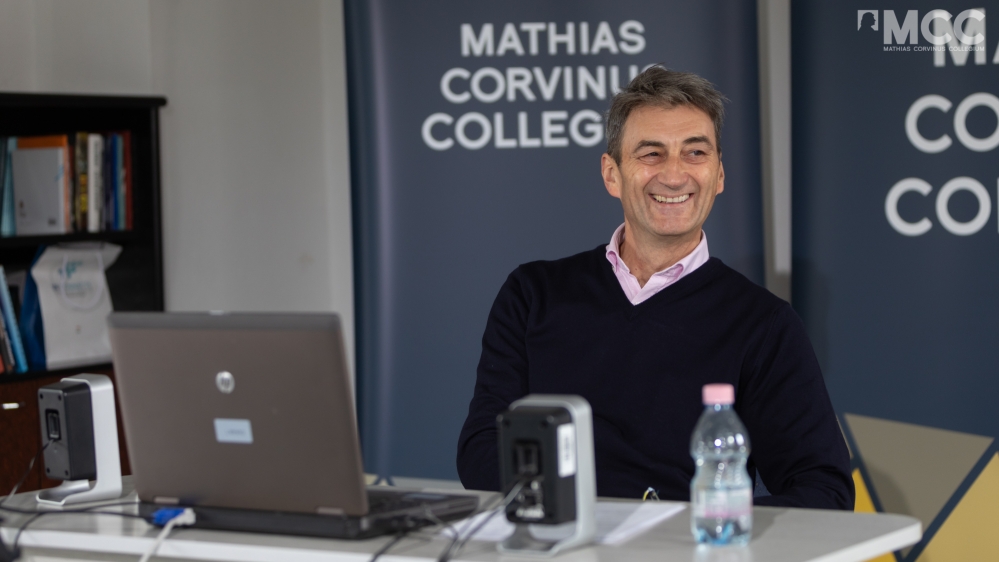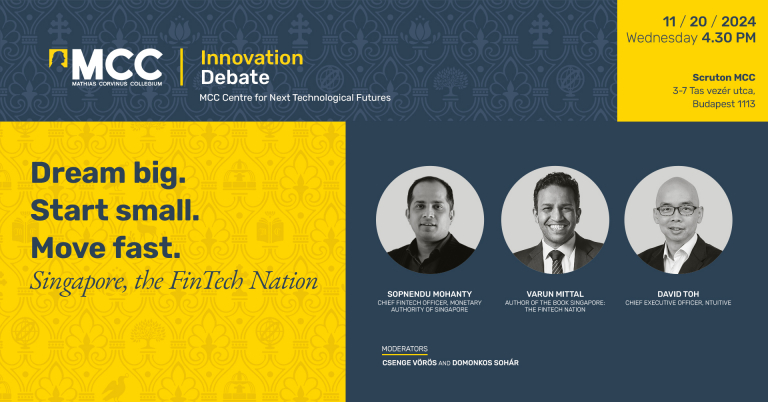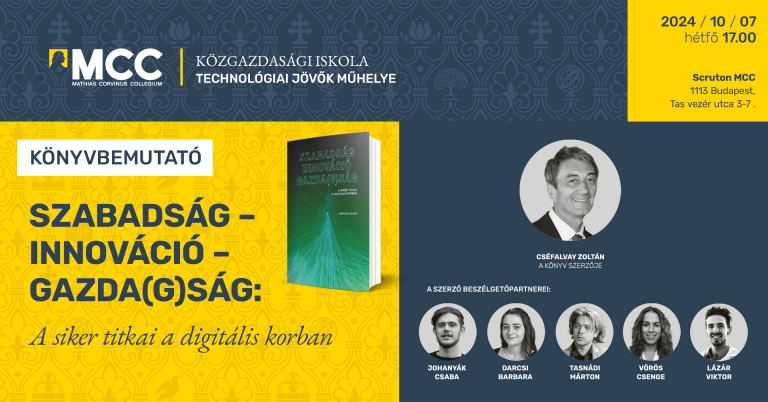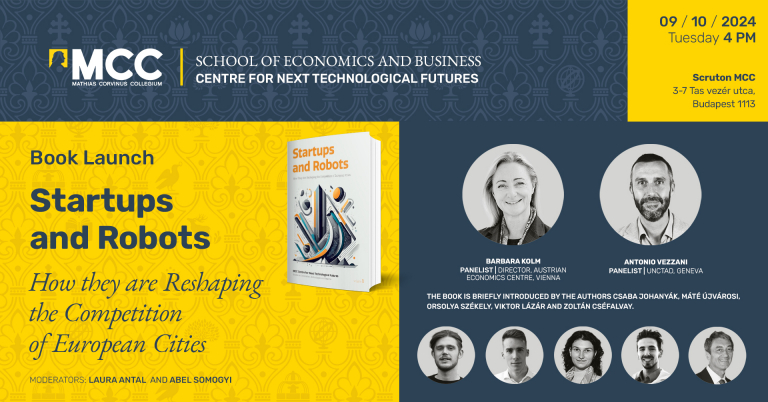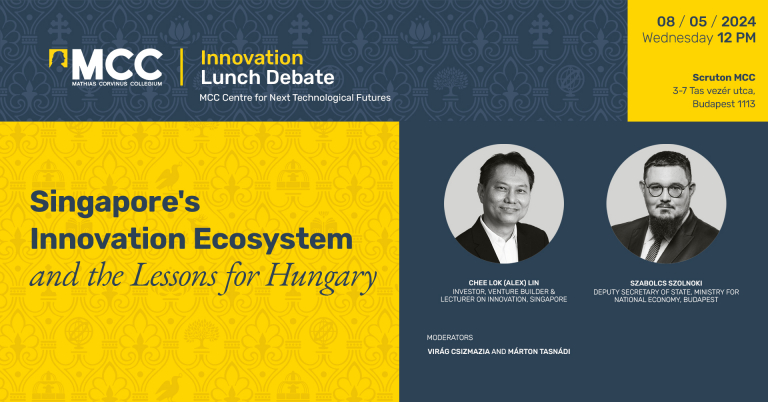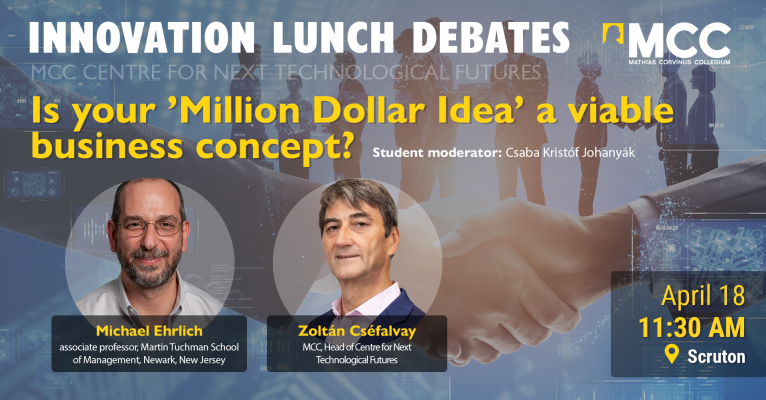A Mathias Corvinus Collegium Technológiai Jövők Műhelyének fő témája a negyedik ipari forradalom és az új digitális technológiák (robotika, big data, mesterséges intelligencia, blokklánc) megjelenése, valamint ezek gazdaságra, társadalomra és geopolitikára gyakorolt hatása. Tevékenységeink közé tartozik az MCC-ben való előadások tartása, tényeken alapuló kutatási projektek végzése diákkutatók aktív részvételével, valamint szakpolitikai kihívások és alternatívák elemzése.
A Központ kiemelt kutatási projektje - The Rise of the Scaleup Cities in Europe - célja, hogy 166 európai város startup ökoszisztémáját, az induló vállalkozásokkal kapcsolatos teljesítményüket, valamint a finanszírozáshoz és a tehetségekhez való hozzáférésüket vizsgálja. Ennek során különös figyelmet fordítanak azoknak az intézményeknek (inkubátorok, gyorsítók, üzleti szervezetek) az elemzésére, amelyek javíthatják az európai városok startup teljesítményét. Annak érdekében, hogy jobban megértsük ezen intézmények működését, rendszeresen szervezünk tanulmányutakat Európa legfontosabb ökoszisztémáiba.
További információk a Technológiai Jövők Műhely honlapján olvashatók: https://cntf.mcc.hu/
Understanding the Fourth Industrial Revolution: Technology & Economy
The course offers a comprehensive insight into the dynamics of industrial revolutions (by applying the works of Carlota Perez, Erik Brynjolfsson & Andrew McAfee, and Richard Baldwin). Based on these, we investigate in detail the main technological changes (robotics, 3D printing, Artificial Intelligence, Big Data analytics, Industry 4.0) and their impact on business and economy. Then, we will discuss some basic narratives around the current industrial revolution, such as the productivity puzzle (Robert Solow, Erik Brynjolfsson), the intangible economy (Jonathan Haskel & Stian Westlake), and the platform economy (Geoffrey Parker & Alstyne van Marshall & Paul Sangeet Choudary).Understanding the Fourth Industrial Revolution: Society & Geopolitics
The course offers a comprehensive analysis of the new General- Purpose Technologies and their business applications. Based on these insights the course investigates in detail the main narratives with regard to the impacts of new technologies on employment. Finally, it provides an insight into the current global race of technological superpowers (US and. China).Innovation Economics
Innovation is probably the most important fact about the modern world, but one of the least well understood. Therefore, the course begins with the discussion about what innovation exactly means, the main types of innovation (incremental versus disruptive), and how innovation became crucial driver of economic prosperity. Then, via numerous practical examples, the lectures analyse the essential features of innovation, such as it involves trial and error, it is increasingly recombinant, is rather a team sport than the solely genius in the garage and prefers fragmented governance rather than centralised ones. We will critically discuss the role of the state, the entrepreneurs and the free market forces in innovation and the policy options for promoting innovation.Nudging: Theory and Practice
Nudging (meaning as any aspect of choice architecture that alters people’s behaviour in a predicable way without forbidding any options or significantly changing their economic incentives) is now everywhere. Hence, this short course offers an insight into the theoretical foundation of nudging, and its practical implementation as well. The course investigates in detail the types and basic principles of nudging and its implementation, such as nudge should be Easy (e.g., by harnessing the power of defaults setting (auto-enrolments), or of loss aversion and scarcity biases), Attractive (e.g., using bold and striking colours for encouraging specific commercial products), Timely (e.g., prompting people when they are most likely to be receptive), and Social (e.g., encouraging people to make a commitment to others). Nevertheless, the course deals with practical experiences of nudging, with the question how governments, especially the British government applied the behavioural insights in different policies. Finally, we are going to discuss the ideology beyond, the so-called ‘libertarian paternalism’, and the advantages/disadvantages and limitations of nudging.Reading Seminar: Four books about the Fourth Industrial Revolution
While the Fourth Industrial Revolution (4IR) is now all over the world talked-of, little is known about how to be prepared for this transformation. Hence, the course provides a comprehensive insight into the dynamics, some basic narratives, and the driving forces beyond the 4IR via reading and analysing four bestsellers on these issues.From Prediction Machines to Superintelligence – How Artificial Intelligence is transforming Business?
While currently there is a lot of hype about Artificial Intelligence, the practical applications of these technologies (Machine Learning, Deep Learning, Natural Language Processing, Computer Vision) are rather narrow, particularly in businesses. Hence, the short course offers, first, a brief insight into the seven decades long history of AI (and its winters and summers). Following this, the short course provides examples how currently the AI is used to make (economic and business related) predictions, how cheaper and quicker predictions increase the value of data and humans’ decisions, and how business practically applies this kind of narrow AI. In detail, during the course we will make an attempt to identify the potential business opportunities of AI in different contexts. After that, the course critically discusses the future of AI, the possibility of Artificial General Intelligence, which eventually could surpass the human intelligence, but it seems to become reality only in a very distant future (if at all). Finally, the course offers a gist of the global race for AI supremacy between US and China.Kapcsolódó hírek
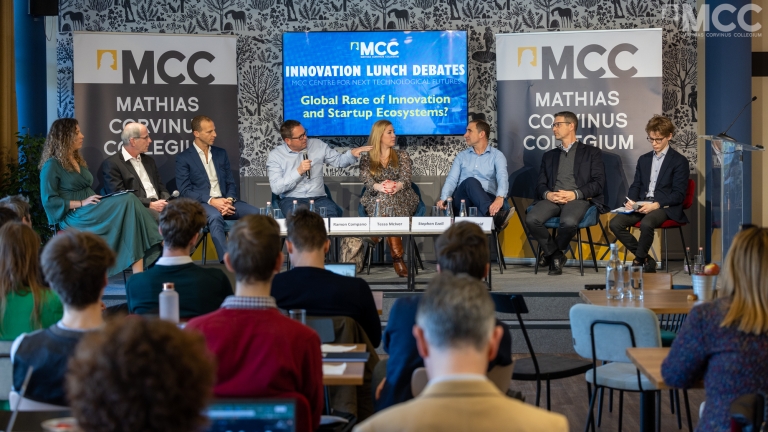
Az innovációs és startup ökoszisztémák globális versenye?
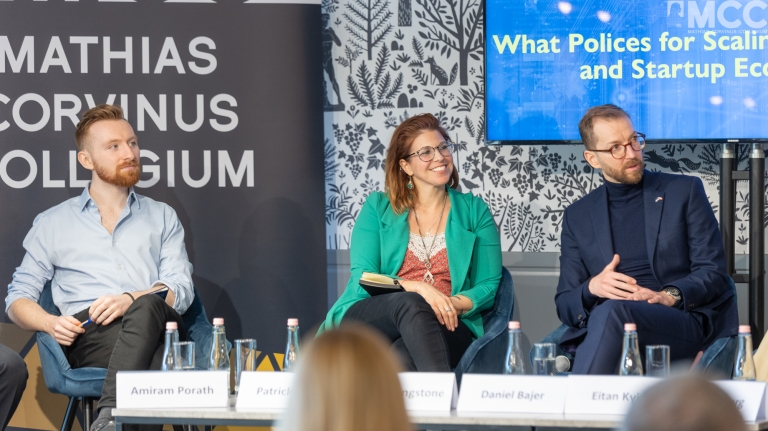
Milyen szakpolitikák segíthetik az innovációs és startup ökoszisztémák növekedését?
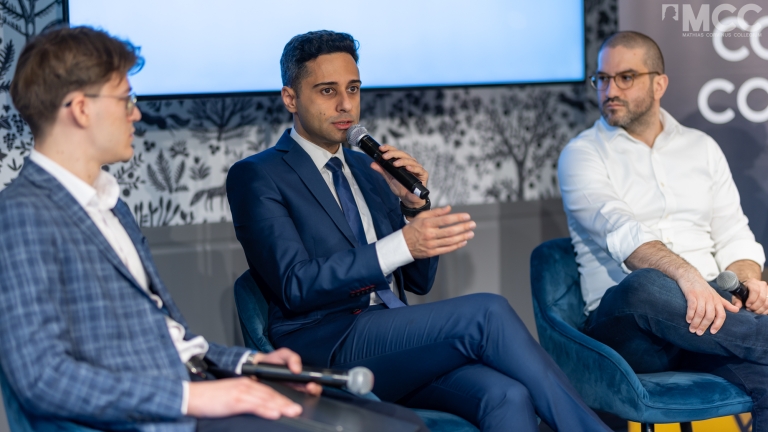
Hogyan hozzuk létre a jövő startup ökoszisztémáját?

Az MCC lesz az Eurasia Business and Economics Society (EBES) konferenciájának házigazdája 2023 októberében
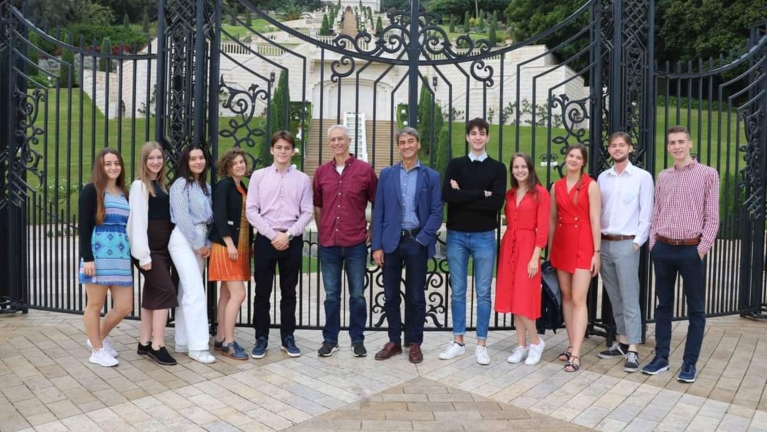
Ne szeress bele a megoldásba, szeress bele a problémába!

